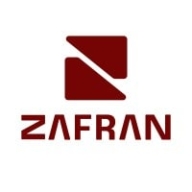


Tenable Security Center and HackerOne are key players in the cybersecurity sector, focusing on vulnerability management and ethical hacking, respectively. Tenable stands out with its vulnerability management prowess, whereas HackerOne gains an edge with robust community-driven security insights.
Features: Tenable Security Center offers advanced security management with detailed insights into network vulnerabilities, comprehensive risk assessment tools, and in-depth data analytics capabilities. HackerOne provides extensive crowdsourced security solutions, leveraging a global community for identifying vulnerabilities across systems and high adaptability to various scenarios, driven by a diverse set of skilled hackers.
Room for Improvement: Tenable Security Center could benefit from enhancing network event investigation capabilities, improving integration flexibility, and optimizing its initial setup to reduce complexity. HackerOne might enhance report accuracy, streamline communication processes with organizations, and expand its support for different software environments to cover broader vulnerabilities.
Ease of Deployment and Customer Service: Tenable Security Center integrates seamlessly into existing systems with extensive documentation, ensuring an efficient setup process, although its structured approach might limit flexibility. HackerOne focuses on straightforward deployment and offers responsive customer support, making customization easy and accommodating various user needs efficiently.
Pricing and ROI: Tenable Security Center's scalable pricing suits enterprise levels, indicating significant initial investments but promising substantial ROI through improved security stance. HackerOne offers competitive and cost-effective pricing models, particularly advantageous for organizations utilizing bug bounty programs, providing a high ROI with quick vulnerability identification.
| Product | Market Share (%) |
|---|---|
| Tenable Security Center | 2.9% |
| Zafran Security | 1.1% |
| HackerOne | 0.7% |
| Other | 95.3% |


| Company Size | Count |
|---|---|
| Small Business | 4 |
| Large Enterprise | 3 |
| Company Size | Count |
|---|---|
| Small Business | 22 |
| Midsize Enterprise | 10 |
| Large Enterprise | 27 |
Zafran Security integrates with existing security tools to identify and mitigate vulnerabilities effectively, proving that most critical vulnerabilities are not exploitable, optimizing threat management.
Zafran Security introduces an innovative operating model for managing security threats and vulnerabilities. By leveraging the threat exposure management platform, it pinpoints and prioritizes exploitable vulnerabilities, reducing risk through immediate remediation. This platform enhances your hybrid cloud security by normalizing vulnerability signals and integrating specific IT context data, such as CVE runtime presence and internet asset reachability, into its analysis. No longer reliant on patch windows, Zafran Security allows you to manage risks actively.
What are the key features of Zafran Security?
What benefits can users expect from Zafran Security?
In industries where security is paramount, such as finance and healthcare, Zafran Security provides invaluable protection by ensuring that only exploitable vulnerabilities are addressed. It allows entities to maintain robust security measures while allocating resources efficiently, fitting seamlessly into existing security strategies.
HackerOne leads in offensive security with a platform that expertly identifies and remedies security vulnerabilities using AI and a vast researcher community. Trusted by industry giants, it integrates bug bounties, vulnerability disclosure, and code security in software development.
The HackerOne Platform offers a comprehensive suite of services, combining advanced AI technology with the skills of a global security researcher community to address complex security challenges. It facilitates an understanding of vulnerabilities, promoting better remediation practices across software lifecycles. Notable clients include Anthropic, Crypto.com, General Motors, GitHub, Goldman Sachs, Uber, and U.S. Department of Defense. Recognized for innovation and workplace excellence, HackerOne continues to set standards in security solutions.
What key features does HackerOne offer?HackerOne finds significant applications in various sectors with its focus on vulnerability assessment, testing, and responsible disclosure. Organizations utilize it for ethical hacking and efficient vulnerability coordination, making it essential in cybersecurity strategies. The platform's reliability is evident in its ability to identify and document security threats effectively.
Get a risk-based view of your IT, security and compliance posture so you can quickly identify, investigate and prioritize your most critical assets and vulnerabilities.
Managed on-premises and powered by Nessus technology, the Tenable Security Center (formerly Tenable.sc) suite of products provides the industry’s most comprehensive vulnerability coverage with real-time continuous assessment of your network. It’s your complete end-to-end vulnerability management solution.
We monitor all Vulnerability Management reviews to prevent fraudulent reviews and keep review quality high. We do not post reviews by company employees or direct competitors. We validate each review for authenticity via cross-reference with LinkedIn, and personal follow-up with the reviewer when necessary.